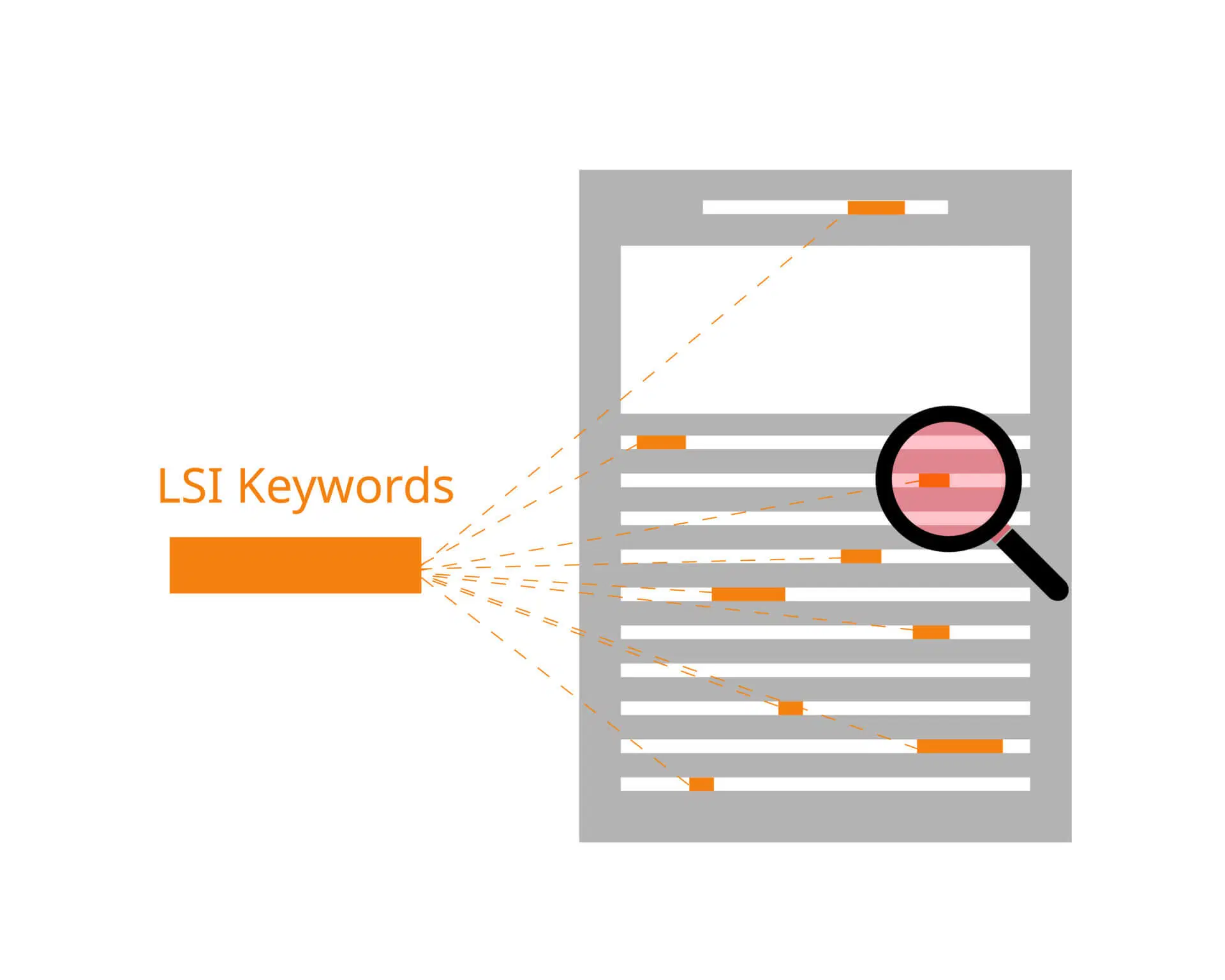As a SaaS company, we know the importance of search engine optimization (SEO) in driving organic traffic to your website.
One term that often comes up in SEO discussions with SaaS companies we talk to is “LSI keywords.”
But what exactly are LSI keywords, and how can they help your SEO strategy?
In this article, we’ll dive deep into the concept of LSI keywords and provide actionable insights to help you improve your search engine rankings.
What are LSI Keywords?
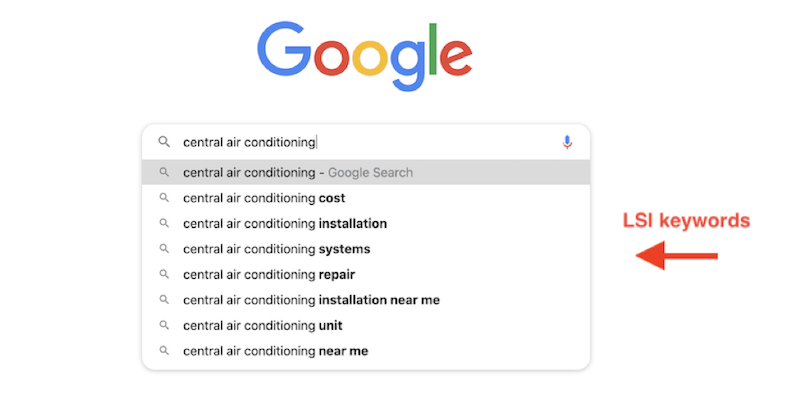
LSI stands for Latent Semantic Indexing, a mathematical method used to determine the relationship between related words, terms and concepts in content. The idea behind LSI keywords is that search engines use them to understand the context and meaning of a webpage’s content, rather than just relying on exact / target keyword matches.
What is Latent Semantic Indexing (LSI)?
Latent Semantic Indexing is an indexing and retrieval method that uses singular value decomposition to identify patterns in the relationships between terms of the primary keyword and concepts in unstructured piece of content.
What is Latent Semantic Analysis (LSA)?
Latent Semantic Analysis is a technique in natural language processing that analyzes relationships between a set of documents and the terms they contain, producing a set of concepts related to the documents and terms.
The Benefits Of Using LSI Keywords
Using LSI keywords in your content can help search engines better understand the context and meaning of your webpages.
By including related terms and phrases, you signal to search engines that your content is comprehensive and relevant to the main topic.
The Limitations Of Using LSI Keywords
While LSI keywords can be helpful, it’s important to understand their limitations. Overusing or stuffing your content with LSI keywords can actually harm your SEO efforts, as it may be seen as keyword stuffing by search engines.
Google’s Stance On Using LSI Keywords
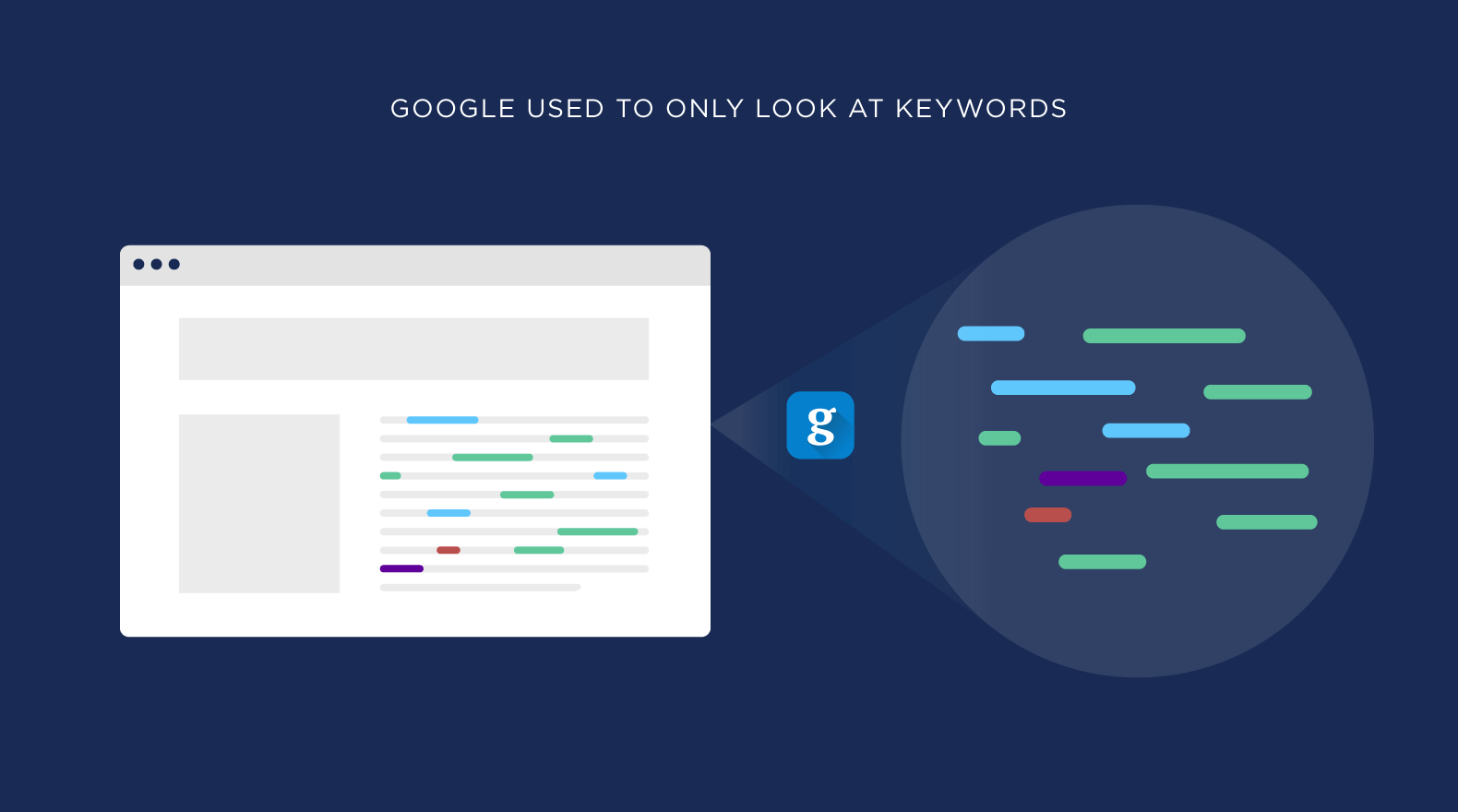
Contrary to popular belief, Google does not use latent semantic indexing in its search algorithm. In fact, Google’s John Mueller has stated that LSI keywords are an “SEO myth” and that there’s no such thing as “LSI keywords” used by Google.
Why Google Doesn’t Use Latent Semantic Indexing?
Google Search has moved beyond latent semantic indexing for search queries and relevant search results and now uses more advanced techniques like natural language processing and machine learning to understand the context and meaning of webpages.
None the less, Latent Semantic Index (LSI technology) is still a major part of google’s algorithm to find relevant pages by search intent.
They also appear to be using LSI keyword suggestion to highlight relevant terms (bolded texts on SERP) & show relevant results & relevant keywords for the target audience at the bottom of the web page.
When Did LSI Keywords Become Relevant?
The concept of LSI keywords gained popularity in the early days of SEO, when search engines were less sophisticated and relied more heavily on exact keyword matches. However, as search algorithms have evolved, the importance of LSI keywords has diminished.
Are LSI Keywords Important For SEO?
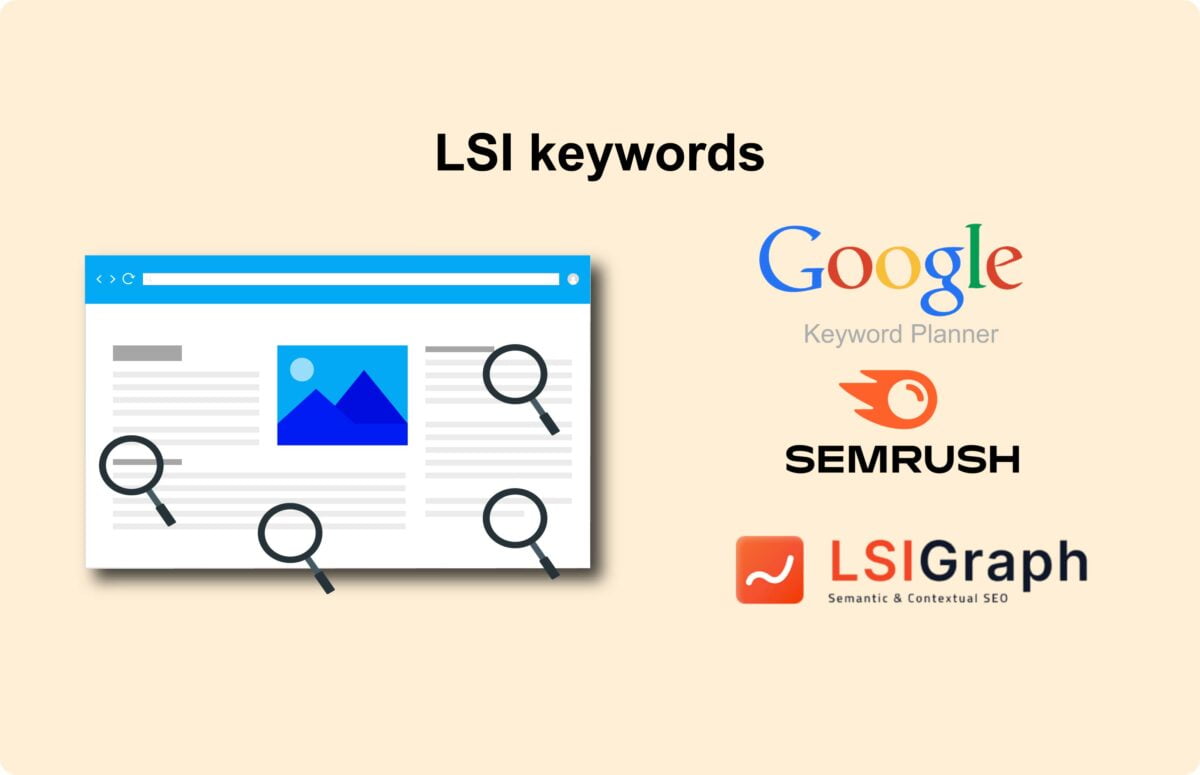
While LSI keywords can be a useful tool for creating comprehensive, relevant content, they are not a magic bullet for SEO success.
Here are a few reasons why:
LSI is From the 1980s
Latent Semantic Indexing is a technology from the 1980s and has largely been superseded by more advanced techniques in natural language processing and machine learning.
LSI Keywords Aren’t Patented
The term “LSI keywords” is not an official, patented term. It’s a phrase coined by the SEO community to describe words and phrases related to a main keyword.
Google Uses Modern Technology
Google’s search algorithms have evolved far beyond latent semantic indexing and now use state-of-the-art techniques like BERT and MUM to understand the context and meaning of webpages.
LSI Keywords Don’t Follow SEO Guidelines
Focusing too heavily on LSI keywords can lead to keyword stuffing and other practices that violate Google’s webmaster guidelines.
LSI keywords and Semantically Related Keywords
While LSI keywords may not be used by Google, the concept of using semantically related keywords in your content is still valid. By including related terms and phrases, you help search engines understand the context and meaning of your content.
How to Find Semantic Keywords?
There are two main approaches to finding semantic keywords for your content:
Find Semantic Keywords For New Content
When creating new content, start by identifying your main keyword or topic. Then, use keyword research tools to find related terms and phrases that are commonly searched for in relation to your main topic.
Add Semantic Keywords To Existing Content
For existing content, analyze your webpages to identify opportunities to include related keywords and phrases. Look for areas where you can naturally include semantic keywords to make your content more comprehensive and relevant.
How To Find Related Keywords With LSI Keyword Tools?
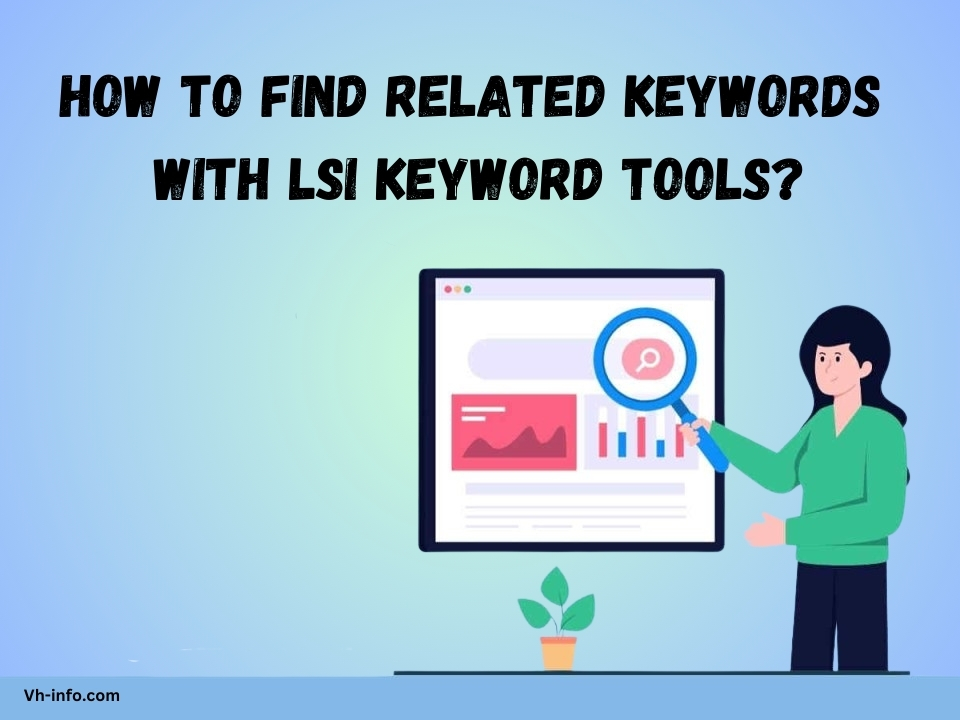
While LSI keyword tools don’t actually use latent semantic indexing, they can still be useful for finding related keywords and phrases.
Here are a few popular seo tools you can use for keyword research & finding keyword ideas for your blog posts:
1. Google Autocomplete
Start typing your seed keyword into Google’s search bar and see what related phrases are suggested.
2. Google Related Searches
Scroll to the bottom of the search results page for your main keyword and look at the “Searches related to…” section for related keywords and phrases.
3. People Also Ask
Look for the “People also ask” box in the search results for your main keyword to find related questions and topics.
4. LSI Graph
LSI Graph is a free tool that generates a list of related keywords based on your main keyword.
5. Serpstat
Serpstat is an all-in-one SEO platform that includes a semantic analysis tool for finding related keywords and phrases.
How To Use LSI Keywords For SEO?

Once you’ve identified relevant semantic keywords for your content, here are a few tips for using them effectively:
Choose LSI Keywords Best Suited For Your Topic
Select semantic keywords that are closely related to your main topic and add value to your content.
Look at the Total Monthly Search Estimate
Consider the search volume for each semantic keyword to ensure you’re targeting phrases that people are actually searching for.
Add LSI Keywords To Your Page
Include your chosen semantic keywords naturally throughout your content, including in the title, headings, and body text.
Focus On User Experience
Use semantic keywords to enhance the user experience by making your content more comprehensive and relevant to the main topic.
How To Correctly Use LSI Keywords For SEO?
The key to using semantic keywords effectively is to focus on creating high-quality, relevant content that satisfies user intent. Avoid keyword stuffing and only use semantic keywords where they naturally fit and add value to your content.
FAQ’s:
What is an Example of an LSI Keyword?
If your main keyword is “digital marketing,” some LSI keywords might include “online marketing,” “content marketing,” “social media marketing,” and “SEO“.
Why Should I Use LSI Keywords?
Using LSI keywords can help search engines better understand the context and meaning of your content, potentially leading to improved rankings and organic traffic.
Are LSI Keywords Considered Secondary Keywords?
Yes, LSI keywords are often considered secondary or supporting keywords that are related to the main keyword or topic.
Can LSI Keywords Improve My Site’s Ranking For Voice Searches?
Including LSI keywords in your content can potentially improve your site’s ranking for voice searches, as these keywords help provide context and meaning around your main topic.
How Do LSI Keywords Improve Content & SEO Ranking?
LSI keywords help improve content and SEO ranking by making your content more comprehensive, relevant, and contextually rich for both users and search engines.
What Is The Main Issue With Latent Semantic Analysis?
The main issue with latent semantic analysis is that it is an outdated technology that has largely been replaced by more advanced natural language processing techniques used by modern search engines.
Does Google Penalize Websites For Keyword Stuffing?
Yes, Google may penalize websites that engage in keyword stuffing, which is the practice of excessively using keywords in an attempt to manipulate search rankings.
Conclusion
While the concept of LSI keywords has been somewhat misunderstood and overhyped in the SEO community, the underlying principle of using semantically related keywords to improve content relevance and context is still valid.
Creating top-notch, thorough content that incorporates relevant keywords and phrases organically can boost your SaaS website’s search engine rankings and increase organic traffic.
At VH Info, we specialize in helping SaaS companies develop effective SEO and link building strategies to improve their online visibility and attract more qualified leads. Contact us today to learn how we can help you take your SEO efforts to the next level.

